On the morning of June 16, continuing the 9th Session, the National Assembly discussed in the hall about 2 draft Resolutions of the National Assembly: on exemption and support of tuition fees for preschool children, general education students, and those studying general education programs at educational institutions in the national education system; on universalizing preschool education for preschool children from 3 to 5 years old.
Basically, the National Assembly delegates all highly appreciated and agreed with the objectives and contents of the two draft resolutions and considered this a correct, timely and especially necessary step. Although the country's socio -economic conditions are still difficult, this policy has demonstrated the deep concern and strategic vision of the Party and State for the cause of education, for the sustainable development of the country and the happiness of the people.
Discussing at the meeting, Delegate Nguyen Thi Viet Nga ( Hai Duong Delegation) pointed out that if tuition exemption is implemented according to the draft Resolution on tuition exemption and support for preschool children, general education students, and students of general education programs of educational institutions in the national system, it means that some sources of revenue will no longer exist and the Resolution stipulates that the funding for implementing this policy will be guaranteed by the state budget according to current regulations and assigns the Government to direct and guide the organization of this Resolution. In particular, according to the draft Resolution, it will take effect from the next school year, that is, from September 2025.
The time for preparation is not long and how the state budget will compensate for the tuition exemption for public general education institutions so that they can continue to operate stably, ensure the quality of education and not affect the rights of students as well as the working and teaching conditions of the teaching staff right from the beginning of the school year is an urgent matter. If the compensation is delayed, it will certainly affect the teaching and learning activities of the school.
 |
Delegate Nguyen Thi Viet Nga. (Photo: National Assembly Portal) |
Therefore, the Delegate requested the Government to direct competent authorities to promptly issue guidance plans and funding compensation mechanisms for educational institutions to ensure that when this Resolution takes effect, its implementation will take place smoothly and smoothly right from the beginning of the new school year.
The Russian delegate also recommended that, regarding the form of tuition support for students in non-public educational institutions, we should consider providing direct support to educational institutions to ensure accuracy, speed, simplicity, and convenience in terms of administrative procedures, and that funds are used for the right purposes. If we consider providing direct support to learners, the statistics and payment procedures will be much more complicated.
Delegate Chau Quynh Dao (Kien Giang Delegation) realized that each payment method has its own advantages and limitations. The direct payment method for students has the advantage of being public, transparent and controlled by students and families, but the limitation is that it can be used for the wrong purpose if it is not promoted and ideological work is not done well, and the meaning of the policy is lost. The procedure is also very cumbersome as mentioned by Delegate Nga and there may be an additional risk of losing students' money.
The indirect payment method through educational institutions has the advantage of being public and transparent according to the public regulations issued by the Ministry of Education and Training. In addition, there are other advantages such as minimizing wrongful spending because there are instructions on how to use the money and at the same time reducing cumbersome procedures for people and learners because of the synchronous digital transformation in the management between functional agencies and the State...
Regarding limitations, we are worried that negative factors will arise leading to policy exploitation by management staff, when we cannot control the issue of professional ethics.
From the above analysis, Delegate Dao is inclined towards the option and method of indirect payment for educational institutions.
 |
Minister of Education and Training Nguyen Kim Son. (Photo: National Assembly Portal) |
The report clarified some contents that delegates were interested in. Minister of Education and Training Nguyen Kim Son shared that through studying international experiences in the world, there are currently 38 countries that are implementing complete tuition exemption for preschool students, most of which are high-income countries. There are 90 countries that implement partial exemption or support for different groups of people in society. It can be said that while our country's economic potential still has many difficulties, many tasks to invest in, our income is not high, which is the target in the coming years, but the Politburo, the Secretariat, the Government, and the National Assembly have also been very unified to implement tuition exemption. "This is a demonstration of concern and effort in developing education and creating conditions for children to access education and reducing the burden on parents, demonstrating the superiority of our regime", the Minister expressed.
Regarding some concerns about how to pay for subjects in non-public schools, according to the Minister, each method has certain advantages and disadvantages, the important thing is having money. This will be assigned to the Government to consider further technical aspects to find the most suitable one, but it should be understood that the support here is to compensate for part of the tuition fees when parents have paid for their children's education, this is also feasible because the database for preschool students is also complete.
Regarding the determination of support levels for students in different localities, we have currently regulated the tuition fees stipulated in Decree No. 81 of 2021 and amended by Decree No. 97 of 2023, which stipulates the tuition fee framework for preschool, high school and university levels. Tuition fees are divided into 3 regions, areas and areas nationwide based on the cost of living, including urban areas, plain areas and mountainous areas, border areas, islands, and disadvantaged areas with different tuition fees based on living needs and ability to contribute.
Therefore, in order to implement the issue of tuition exemption in time for this school year, the Ministry of Education and Training is actively developing a decree to replace Decree 81 and Decree 97. The Ministry sets a goal that this June it can be completed and can be issued at the same time when the Resolution on tuition exemption is passed by the National Assembly and takes effect, which will stipulate a framework that is calculated according to 3 regions, 3 areas, and calculated according to the floor level and tuition level. The trend of the People's Councils of the provinces when determining tuition levels is mostly calculated according to the floor level for support, so the figure of 30,000 billion that the Ministry of Education and Training in coordination with the Ministry of Finance calculated is based on the actual support level being spent by the People's Councils of the provinces and cities, including 10 provinces and cities implementing tuition exemption and localities that cannot balance themselves.
If provinces and cities have better conditions and want to support more than the ceiling, there are many things that can be spent on schools such as facilities, equipment for teaching, teachers and many other sources of payment that schools need. The Minister gave examples such as school staff, meal support, some provinces and cities are also considering other supports and there are many things that schools want to be supported...
Source: https://baophapluat.vn/ngan-sach-se-ho-tro-30000-ty-de-mien-giam-hoc-phi-tu-nam-hoc-2025-2026-post551917.html


![[Photo] Unique art of painting Tuong masks](https://vphoto.vietnam.vn/thumb/1200x675/vietnam/resource/IMAGE/2025/11/14/1763094089301_ndo_br_1-jpg.webp)

![[Photo] Unique architecture of the deepest metro station in France](https://vphoto.vietnam.vn/thumb/1200x675/vietnam/resource/IMAGE/2025/11/14/1763107592365_ga-sau-nhat-nuoc-phap-duy-1-6403-jpg.webp)



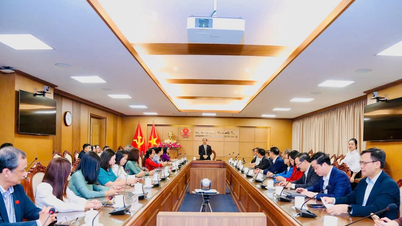

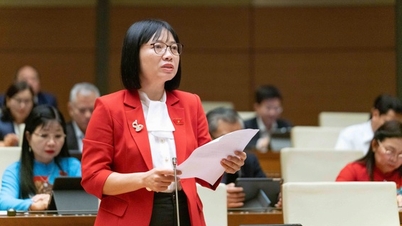




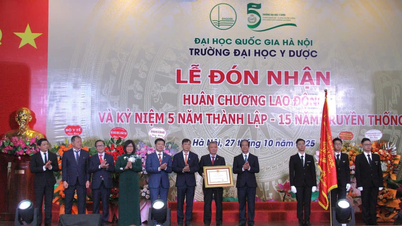





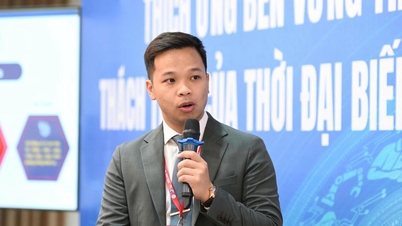
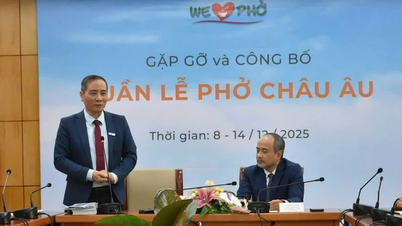







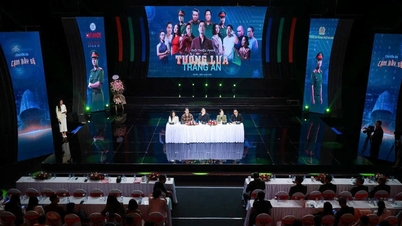



![[Photo] Special class in Tra Linh](https://vphoto.vietnam.vn/thumb/1200x675/vietnam/resource/IMAGE/2025/11/14/1763078485441_ndo_br_lop-hoc-7-jpg.webp)












































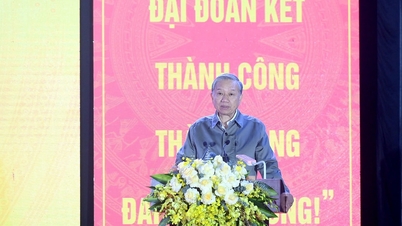




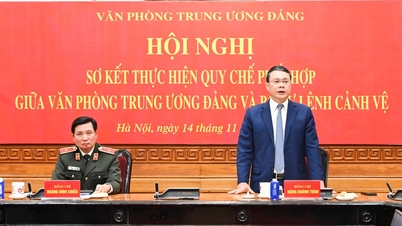




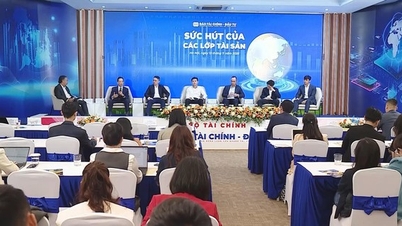





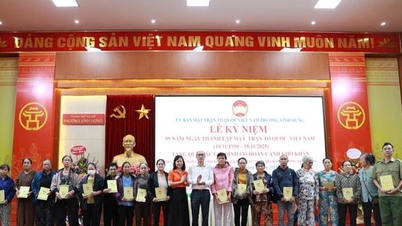













Comment (0)